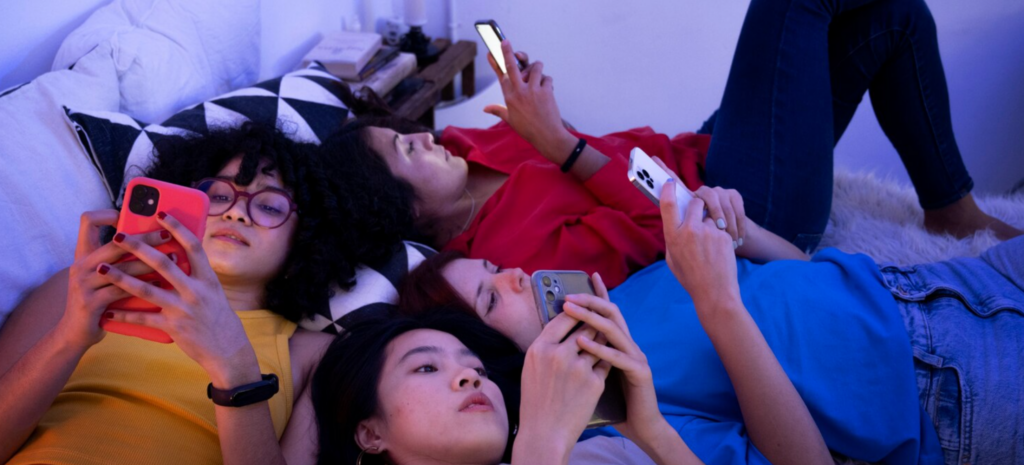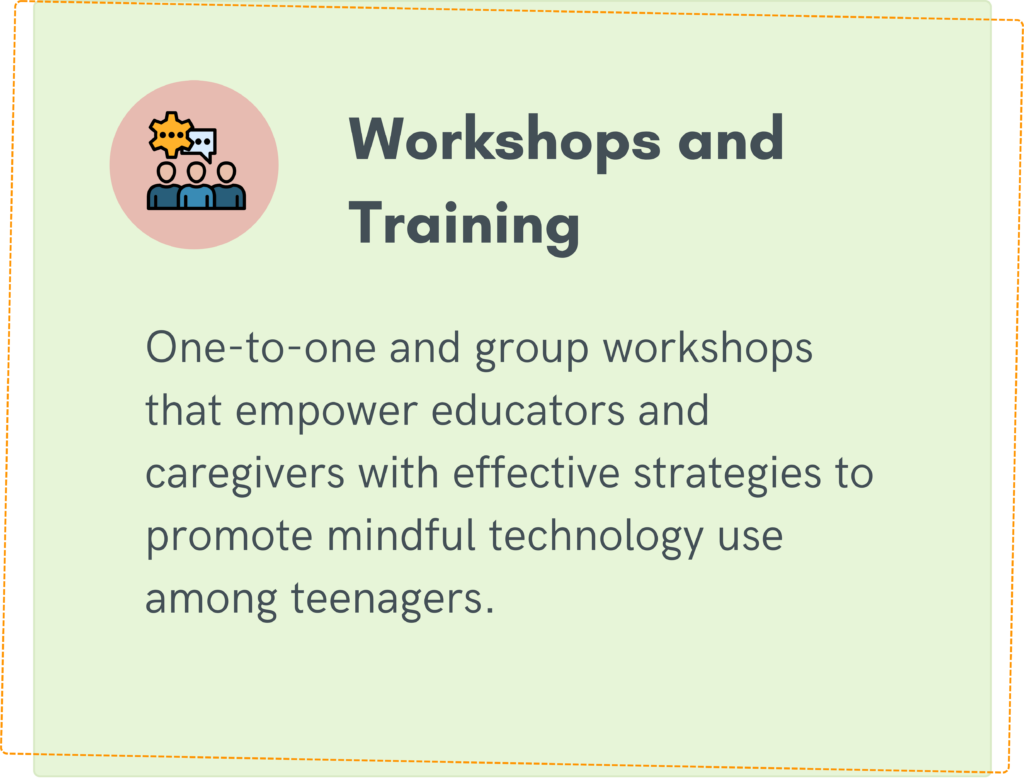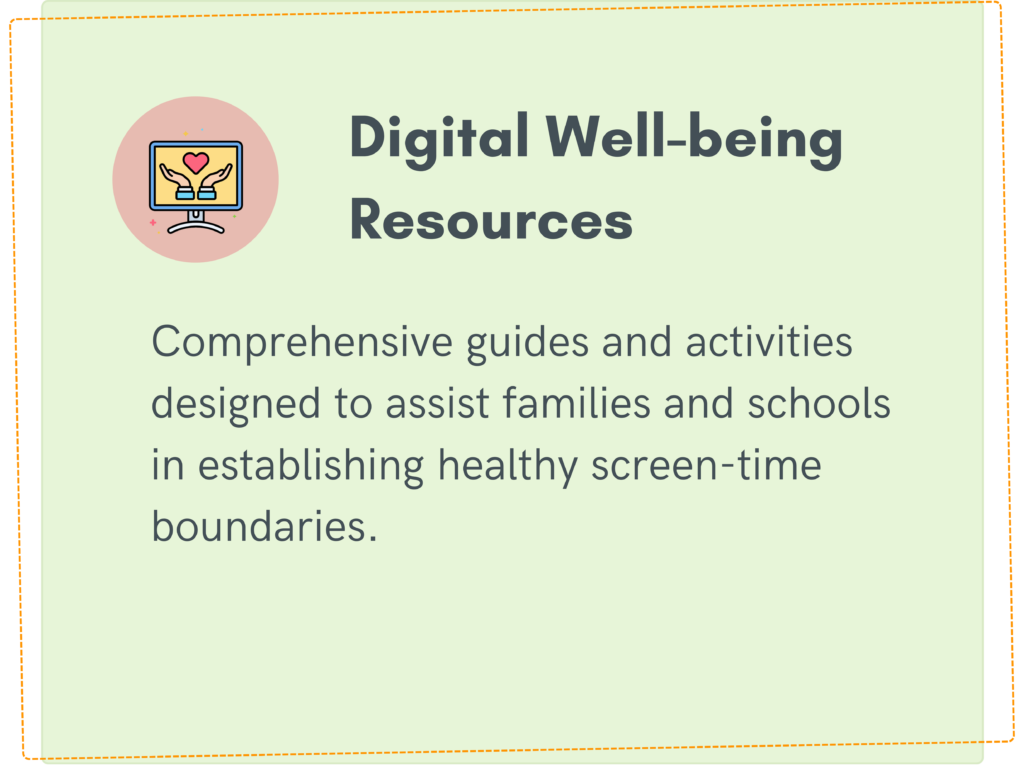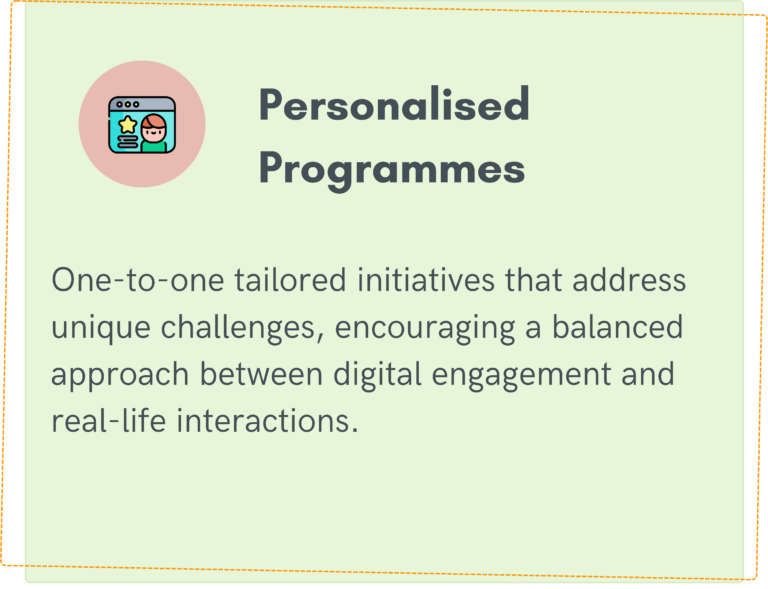




The Growing Dependency on Mobile Phones
Nomophobia—the fear of being without a mobile phone—is a growing concern for teenagers. Studies by psychologists, medical experts, and Digital Mindfulness reveal that increasing reliance on technology can lead to anxiety, poor sleep, and shorter attention spans. Many teenagers feel stressed and isolated when unable to access their phones, which harms their mental health and relationships.
Excessive technology use also negatively impacts academic performance and social skills. Teenagers may prefer online interactions over face-to-face conversations, and their self-esteem can become tied to likes, comments, or notifications on social media.
The World Health Organisation (WHO) and governments worldwide recommend limiting screen time to no more than two hours per day, balanced with physical activity, socialising, and sleep.
At Digital Mindfulness, we aim to enhance digital literacy and encourage teenagers to be more mindful of their tech habits. Our approach helps them manage their online and offline lives, stay grounded in reality, and build healthier relationships with technology.
Are Our Teens Losing Touch With Reality?
Recent research highlights a troubling trend: teenagers aged 13 to 18 are experiencing fewer face-to-face interactions with their peers, contributing to increased feelings of loneliness and social isolation. Nearly half (46%) of teenagers surveyed across 28 countries report being online “almost constantly,” a sharp rise from 24% in 2014.
Teenagers now spend an average of 8.5 hours daily on devices—primarily for social media, gaming, and texting—excluding time spent on schoolwork. Tweens (ages 8 to 12) are also deeply immersed in screen time, averaging 5.5 hours per day. Alarmingly, much of this time is spent alone, often in bedrooms, with mobile phones as the dominant device.
Excessive screen use doesn’t just replace in-person interactions—it also disrupts sleep patterns, increases anxiety, and affects attention spans. These behaviours can leave teenagers feeling disconnected from reality and overly reliant on their digital lives for validation and self-worth. create meaningful change in teenagers’ tech habits.
Mindful Use of Technology
Digital Mindfulness has been advocating for healthy tech habits in teenagers since 2020. Our programs include:




